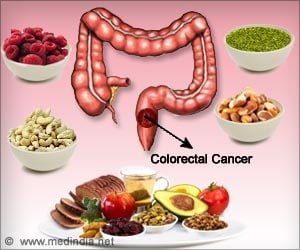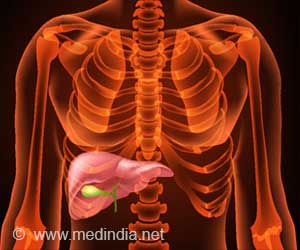- Colorectal cancer has become prevalent in India in recent times
- A recent study shows that excessive consumption of refined sugar, red meat, and spicy foods can be linked to an increased risk of colorectal cancer
- Colorectal cancer can be prevented by following a healthy diet, regular exercise, and avoiding smoking and alcohol
Colorectal Cancer: East vs. West
Dr. Sandeep Nayak P, Director - Department of Surgical Oncology and Robotic and Laparoscopic Surgery, Fortis Hospital, Bannerghatta Road, Bengaluru stated that the scenario of colorectal cancer in India is very different from the one that is prevalent in the West.In India, rectal cancer cases make up 64% of the cases while the number of colon cancer cases makes up 36% of the cases. This could be due to genetic differences between the Indian and Western populations. However, this means that many more patients in India would be offered a permanent stoma (bag to drain stools) compared to the west. This implies that the situation is completely the opposite of what it is in the west.
Role of Diet in Colorectal Cancer
Dr. Nayak said that it has been established that diet affects the risk of colorectal cancer. The study found that consumption of red meat, refined sugar, and spicy foods increases the risk of colorectal cancer.Symptoms of colorectal cancer include bleeding with bowel movements, constipation, changes in bowel habits, unexplained weight loss, and anemia
This study was further corroborated by many subsequent international studies which also showed similar results.
The World Health Organization (WHO) has declared refined sugar and processed meat like sausages as carcinogens, which means that they are a cancer-causing agents. This is an important development as many food items available in the market use a large quantity of sugar to improve the taste and make it more attractive to the people. In many cases, it can also become addictive which can have severe health repercussions. Therefore, it is advisable that people should be careful as to what they eat.
Role of Surgeons in Treatment of Rectal cancer
Unlike colon cancer, rectal cancer requires a different treatment plan. Usually, radiation therapy is required before surgery for rectal cancer. By undergoing this procedure, the anus is typically saved and a persistent stoma is avoided. Stoma can be avoided in more than 75% of rectal cancer patients.But unfortunately, most of the patients end up with a permanent stoma as the skills required to perform this sphincter-saving surgery called intersphincteric resection (ISR) are lacking in most of the centers. There was a need to build the skills among the surgeons to perform such complex work.
Dr. Pragna Sagar Rapole S, Consultant - Radiation Oncology, CARE Hospitals, HITEC City, Hyderabad, states that colorectal cancer is a serious disease that can have devastating effects on the lives of those who are affected by it. It is a type of cancer that develops in the colon or rectum, and it can be fatal if not diagnosed and treated in a timely manner.
How to reduce Risk of Colon Cancer
There are many steps that individuals can take to reduce their risk of developing colorectal cancer.- Eat a healthy and balanced diet
- Fiber is your friend; consume ample fiber-rich foods
- Avoid sugar and processed foods
- Regular exercise and movement
- Avoid smoking and alcohol
Early Diagnosis is Key
Experts say that although colorectal cancer is quite common now, it is not always easy to detect. In many cases, the symptoms may not appear until the cancer has progressed, making early detection even more critical and difficult.However, it is said that one can reduce the risk factors by undergoing regular screening and thereby reduce their risk of developing colorectal cancer. By performing a simple colonoscopy early on, doctors can remove polyps and prevent colorectal cancer from developing. If diagnosed early, colon cancer can be cured with surgery. Minimally invasive laparoscopic and robotic surgery techniques have made it possible for patients to be discharged early, and recovery time is shortened.
Even if the cancer has spread to other parts of the body, such as the lungs, liver, or peritoneum, there is still hope for a cure.
Reference:
- Red and processed meat and colorectal cancer incidence: meta-analysis of prospective studies - (https://pubmed.ncbi.nlm.nih.gov/21674008/)
Source-Medindia















